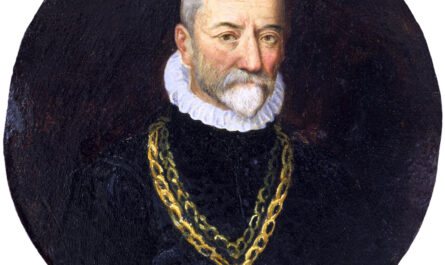What does an ideal day look like? What would the wisest among us choose to do? How might you prepare for such a day? It turns out, those “perfect” days look suspiciously like days filled with purpose. I’ve looked at dozens of outlines, regimens, and prescriptions for the greatest days ever and here’s what I’ve discovered; it’s all about the basics. Taking care of your mind, physical body, spiritual self, and protecting your time and attention for what really matters.
#1 Move – go for a walk or a run or both.
Wake up and go for a run. Spend fifteen minutes before bed stretching. Have a daily workout time. Do all of these or just one of them. Regardless, move. How and for how long matters much less than actually getting up and putting your body into some sort of motion.
“Above all, do not lose your desire to walk: Every day I walk myself into a state of well-being and walk away from every illness; I have walked myself into my best thoughts, and I know of no thought so burdensome that one cannot walk away from it.”
– Soren Kierkegaard.
A healthy body is integral to having a clear mind, and you can’t take care of your mental game without tending to your physical body. As Kierkegaard experienced, we can often walk or move ourselves into a better or happier mental outlook as we physically move through space. Walking is a great way to clear your mind, work through frustrations, or just get some fresh air. Many philosophers, writers, poets, and musicians have reaped the benefits of a walking routine. One of the best things about a walk or run, is the act of being present. What are your feet crunching over, what is that waving in the distance, what are you hearing? Your senses are all telling you exactly what is going on around you, only now, because you are paying attention, you notice them. A walk is a reminder to remain present, wherever you are.
#2 Make learning a daily habit.
We’ve all heard the idiom, “You learn something everyday,” but it’s not quite right, is it? Learning everyday is not a foregone conclusion, but the result of a choice to learn. While we certainly can learn something new everyday, it’s the mark of a disciplined mind who actually achieves this. We should look at the idiom as a challenge, and not an automatic result of daily life. Winston Churchill did just that and made learning something new part of his daily routine. He wrote, “Every night, I try myself by Court Martial to see if I have done anything effective during the day. I don’t mean just pawing the ground, anyone can go through the motions, but something really effective.”
If you aim to learn something new or interesting every day, you never have to worry about stagnating or not advancing. It’s protection against the temptation to think you’ve heard it all and seen it all. You haven’t even scratched the surface. Learning every day keeps us humble,too, since the more we learn, the more we realize how much we don’t know.
Make it a daily habit, where the marker of success is whether you write down a new note or quote that day. If you have note, the day was a success, if not, you still have work to do. Don’t go to bed without writing down something unique, whether it’s snippets of a conversation or a captivating figure you heard that day. Forming the habit of learning daily will serve you your entire life.
#3 Prepare to face obstacles.
Prepare your mind for negativity, difficulty, and setbacks. This isn’t pessimism, nor an excuse to not adequate make arrangements for the day. Rather, it’s a reminder and realistic expectation that things sometimes go sideways; plans fall through, tires run flat, a deadline is moved up, someone in the family gets sick, etc. When getting ready to face the day each morning, remind yourself that there are things you can prepare for and work to mitigate, but are unpredictable by their nature.
Seneca reminds us, “The mind is strong against things it has prepared for.” When you know you have a heavy weight to move, you prepare your mind and body for the work. So it is with obstacles, whether people or events. If you expect some resistance to your plan or hope for the day, if you’ve already mentally prepared to be thwarted, the resistance doesn’t seem so overwhelming.
Similarly, Marcus Aurelius wrote the following reminder to himself to start the day prepared to encounter difficult people,
“Begin the morning by saying to yourself, I shall meet with the busybody, the ungrateful, arrogant, deceitful, envious, unsocial. All these things happen to them by reason of their ignorance of what is good and evil. But I who have seen the nature of the good that it is beautiful, and of the bad that it is ugly, and the nature of him who does wrong, that it is akin to me; not [only] of the same blood or seed, but that it participates in [the same] intelligence and [the same] portion of the divinity, I can neither be injured by any of them, for no one can fix on me what is ugly, nor can I be angry with my kinsman, nor hate him.”
As a further reminder to himself, Aurelius reiterated, “…it is not men’s acts which disturb us, for those acts have their foundation in men’s ruling principles, but it is our own opinions which disturb us.” In other words, everyone is acting in the way he sees best, and those actions alone aren’t what vex us, but our opinions about those choices. The fact remains, other people’s choices don’t require your opinion. Instead, use that energy to prepare and work through the obstacles and ideas which you do have influence over.
Isn’t it amazing an Emperor possessed the wisdom and humility to remind himself that it’s our opinions which make situations unbearable, not other people? We would be wise to incorporate that wisdom into our daily lives.
#4 Write.
Simply put, writing is thinking. It clears your mind to think. Putting words onto a page forces you to put your thoughts into a logical idea, a spark you are able to share with another person.
Writing everyday is important for several reasons. First, to think through your ideas and beliefs. George Orwell warned, “If people cannot write well, they cannot think well, and if they cannot think well, others will do their thinking for them.” Our thoughts determine the actions we take, which determine our futures. Therefore, we can conclude that your thoughts determine your future. Whether you look forward fearful of failure or with confidence in your own ability to adapt and overcome is a large factor in your success or failure.
We all think everyday, but most people don’t bother to write down their ideas. This basically guarantees that they won’t take action on those ideas, even the really great ones, all because they have no record of these ideas.
Writing is how we get our thoughts out of our heads to think about them. As Flannery O’Connor said, “I write because I don’t know what I think until I read what I say;” it’s the same for us. We don’t know what we think until we see it for ourselves. Write out the thoughts that keep swirling around the issue you’re struggling with. Get your thoughts out of your head, so you can use your brain to think. Don’t use your mind as a shelf to leave things on and pick back up. Instead, use your mind to think through those ideas you’ve saved in a notebook (physical or digital).
Writing also can make a huge difference in thinking on something and thinking through something. The difference between the two is results. Thinking on is panicking, circling and doesn’t yield tangible action. Thinking through gives insight into the purpose of a plan, and comes to a conclusion. Thinking through a problem gives you results and a clear path to take.
Lastly, you’ll need a place to keep track and review all the things you learn each day. Log your daily activities, observances, conversations, etc. Write out what you’re grateful for. Write out the things you want to change, the things you’ve observed over the day. Whether you write all of these things, or something else, make time to write every day.
#5 Get Outside.
We would be hard-pressed to find a writer who has not commented on the wonders fresh air and sunlight work on the human mind.
Humans need sunlight. We are part of nature, as Thoreau reminds us, not just society. We need daily sunlight on our eyes and skin to properly function, to keep our sleep cycles regular, and for our mental clarity. “I think,” Thoreau said, “That I cannot preserve my health and spirits, unless I spend four hours a day at least—and it is commonly more than that—sauntering through the woods and over the hills and fields, absolutely free from all worldly engagements.”
He was echoing Seneca, who, over a millenia before, was extolling the virtues of walking outside,
“We should take wandering outdoor walks, so that the mind might be nourished and refreshed by the open air and deep breathing.”
The essays and writings of the world’s greatest leaders and thinkers are bursting with records of outdoor wanderings and the benefits of fresh air. From Thoreau’s daily walks, to Beethoven’s daily strolls with his notebook, to Churchill laying bricks for his time outdoors, spending time outside has long been a driver of creativity. I’ve noticed in my own daily time spent outside, I always return refreshed, calm, and with more ideas than I went outside carrying.
Take some time each day, even as little as ten minutes, to observe the trees and wildlife and feel the sunlight on your skin. Your mind and body will be refreshed and inspired.
#6 Eliminate distractions.
Distractions are like weeds – left alone they tend to multiply. A distraction is anything which is not moving you toward your goals, whether they are personal, mental, physical, or professional goals. If it is not helping you in any way, or worse – taking time away from the important things – why spend any considerable time and energy on it?
Actor Bruce Lee said, “The successful warrior is the average man, with laser-like focus.” He certainly understood focus; by outworking his competitors, Lee gave producers no choice but to take a chance on his talent and relentless drive for perfection. The only difference between the warrior and the average man, Lee observes, is the focus the warrior develops and uses.
When we talk about focus, we hear a lot about choosing the right thing to focus on and not relenting or taking our eyes off that goal. However, deciding what we won’t give attention to is a major part of focus – saying yes to one thing is saying no to dozens of other possibilities.
Distractions add up and cost you time, concentration, and energy. Be as ruthless with them as they are with you.
What I mean by “eliminate distractions” is to remove the possibility of distractions. I don’t mean, put your phone on silent. I mean, turn your phone to Do Not Disturb mode, leave it in another room, and get to work. Eliminate the possibility of distraction. Instead of depending on a quiet morning, turn on white noise in the background to drown out any noises which could potentially distract you.
It’s not a matter of being able to concentrate despite your phone dinging and your neighbors throwing parties and the television being on, and so on. Focus is the discipline of stripping away everything which does not matter so you can concentrate on the things that do matter.
#7 Rambling conversations with people you love.
Conversely, give the people and conversations which do move you unlimited time. Maybe you reschedule a work call for when your kids are in bed, instead of during dinner. Maybe you take an extra loop on your walk because the conversation is flowing so well. Capitalize the great opportunities.
Cicero concluded, “Friendship improves happiness, and abates misery, by doubling our joys, and dividing our grief,” though the same could be said of family who are friends, as well. Friendships only become more rare as life goes on, as circumstances shift and communication struggles.
Make time in your daily planning for the people you love and deep conversations with them. We are made for connection. True person to person connection, not just clicking like on a status update “connection.” We all need time committed to talking with those we love. It’s the people we surround ourselves with who mold us and make the journey worthwhile.
These seven practices have been passed down, refined, and implemented by generations of remarkable and remarkably normal people because they work. They bring cohesion and purpose to our mental, personal, and professional lives. The best days are those where we feel we make progress toward something worthwhile. By practicing learning, reflecting, movement, and purposeful hobbies we know we are doing just that.




